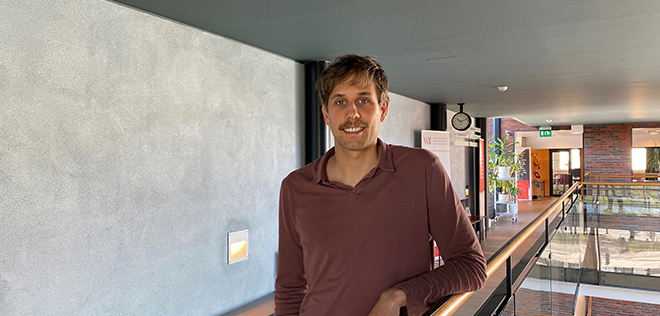Researcher introduction: Nicola Mauri

We interviewed visiting researcher Nicola Mauri for our researcher introduction series. Read the text below to see what Nicola is working on.

Please introduce yourself
I’m Nicola Mauri and I'm from Switzerland. I'm a PhD candidate in my 4th year at the University of Lausanne, which is in the Western French speaking part of Switzerland. I've studied political science and economics during my undergraduate studies, and now I'm working under the supervision of Professors Marius Brülhart and Nils Soguel on topics related to tax competition, local public finance, and regional economics.
What kind of research are you currently doing?
I’m currently doing my thesis and it will consist of three articles. In my first paper, I study how fiscal equalization, which is a system of redistribution of tax revenues between municipalities or between regions, affects the tax setting behavior of local governments. In my second paper, fellow PhD candidate Jeremy Zuchuat and I study how fiscal decentralization, which means the transfer of expenditure responsibilities and revenue assignments to lower levels of government, and tax progressivity impact the location choice of people with different income levels. Our results show that, if you remove fiscal decentralization, you tend to get gentrified city centers because rich individuals might be less willing to commute from outside of cities if they are not compensated through lower taxes.
What type of research projects will you work on next?
I’m entering the job market next year in March. In my third and last thesis paper, I'm trying to evaluate how local decision makers or local policymakers perceive tax base mobility. I try to look at how the availability of land in different municipalities affects who is perceived by local policymakers as the most mobile tax base. Basically, I am researching whether they consider firms or individuals as being the most mobile tax base, which can vary according to local land-development policies.
Name a question of economics, which you would like to able to answer right now. Why are you interested in this particular question?
I'm always asking myself, what is the objective function of a local government and to be more precise, do local policymakers care about the well-being of the citizens they represent, or do they care mostly about tax revenue? In my field, it's an important question because the predictions are very different whether policymakers tend to consider the well-being of their citizens or whether they're more focused on maximizing their tax revenue. I don't think there's a clear consensus on this in the literature.
What is it about local government that fascinates you?
Compared to the federal level, local governments are subject to much more regulation, and they have less leeway in how they act. Local government also impacts the average individual a lot more directly than you would think, because decisions at the local level have a large impact on how people live, and I think it's disregarded a bit by the general public because they find local government boring. But in the end, I think it's the thing that affects them the most in terms of what they pay at the end of the month and where they can live or how their city will look like, so I think it's a rather important topic.
Blog
Blogit
Local public finance and provision of public services
Municipalities and wellbeing services counties

